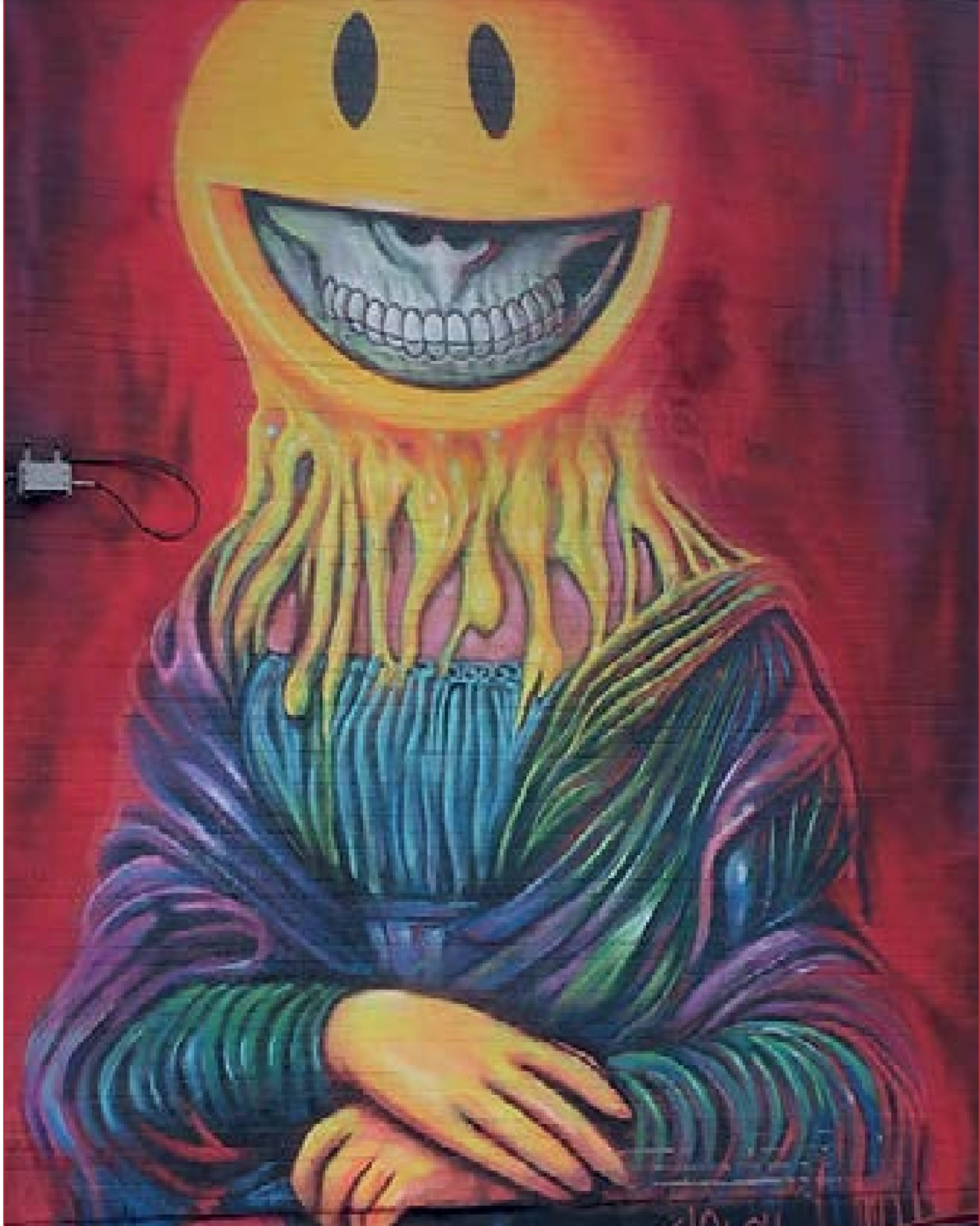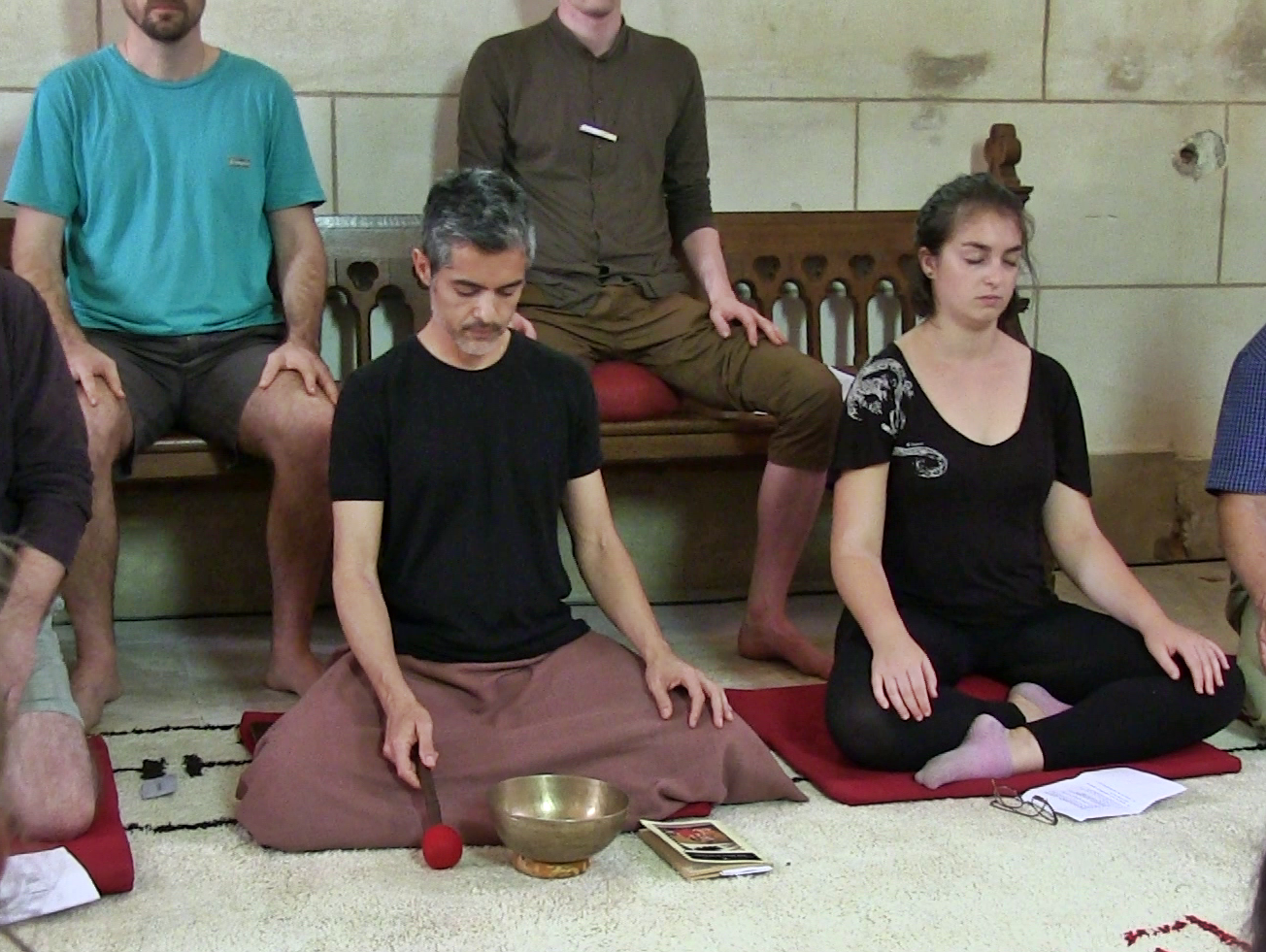Dear friends,
I met Juan when I visited Homeboy Industries in downtown Los Angeles with members of our community. He is in his mid-twenties and a recent father of twins. When someone asked Juan how he came by an unsightly gash gouged in his cheek he said ‘it’s a long story’. Given his past, it is hard for him to adjust to fatherhood. With the help of Homeboy he has made enormous progress. In a short time the ‘nomatterwhat’ practical compassion and open-heartedness of this institution dedicated to gang intervention and rehabilitation gave him hope and dignity for the first time. ‘Nothing stops a bullet like a job’ is their motto.
Juan grew up with an addicted mother and an absent father. His role model and sole friend was an elder brother. Many days they didn’t know where they would sleep. They hustled for food. They shared their clothes and had three sets of underwear between them. When he met Homeboy he had the experience for the first time, of being genuinely accepted for himself. He had always felt he was in the way, unwanted, a nuisance or threat to others. Slowly his shattered sense of self healed and his humanity emerged, battered but functional. He will never have known the luxury of eighteen years growing up in a safe environment before venturing into the world. But he has a wise smile. He knows he has a new start.
After our visit we returned to the parallel universe that makes up this city. At its worst, it is a world of conspicuous wealth, glamour and celebrity. Behind both universes lurks the powerhouse of showbiz, entertainment and pornography, which spew out endless addictive material to corrupt the imaginative life of rich and poor Angelinos and about half the world besides. For anyone living in this once Edenic part of the world – still beautiful and attractive for its endless mix of human cultures and creative energy – there is also the absurd monster of traffic. Public transportation is a last resort. The shiny tin boxes carrying solitary travellers block every highway system like a Frankenstein out of control. People talk about as if it were a person. Unreality and inhumanity lead to social absurdities: traffic, global warming, drug empires. Illusion is a lethal absurdity. Only hard
reality and the cultivation of true attention will free us from it.
The Tattoos of the Heart
Homeboy Industries has a special room for removing tattoos, which are the tribal language of the gangs. These are not just cute tattoos on your leg but whole-body jobs covering shaven heads, faces, arms, torsos and below. A new life and job requires a new, less anti-social look and so the young men undergo many painful sessions to remove these attachments to their past.
Perhaps our meditation does the same, but it would be another consumer illusion to think that meditation offers a quick, one-off solution. But the earlier we start the better. Children have less baggage. Addictions are less engrained. In our case, recovery depends on how unreal we have become. For most children, the unreality has made less headway, and so meditation works more immediately – provided they receive good instruction and support in the practice from teachers or parents.

In S. Africa I was meditating with a class of nine-year olds. I have learned not to ask after meditation if they have any questions as they are usually about the bell I used. I asked ‘so, what did you feel…’. One boy put up his hand: ‘I think that’s the longest we have ever been quiet in this class’, he said. The teacher caught my eye. Another child spoke up, making strange movements with his hands. He said, ‘While we were meditating I wasn’t using my hands’. His teacher explained later he was addicted to video games, so badly that he would often be too tired to come to school in the morning. And even when not in front of the screen, he was always mentally playing the game. During those few minutes of meditation he felt freed from that compulsion.
It takes time to remove the tattoos of habits and addictions that are impressed on mind and emotions. However long it takes, the simple knowledge that we are seriously engaged with the work of dis-illusionment is satisfying and re-humanising. We become aware of how we are shedding the habits of chronic imbalance while discovering a dynamic new equilibrium.
Balancing Life and Forgiving Debts
Balance – in all wisdom traditions – is the universal key to meaning and integrity both morally and physically. The genius of the Greeks was to see this expressed in the beautiful harmony of the human body. Musically, in genius such as Bach’s, we love to feel the work for balance and resolution penetrating deeply into our senses.
Stress, the modern disease, is a symptom of both personal and social imbalance. When it becomes extreme we try to reduce its effects but only rarely do we engage with the causes. It is hard to live a balanced life in our fast and over-active world. So, we need exceptional measures – like our twice-daily times of meditation – to counter the social conditioning. Rhythm resets balance. At Bonnevaux I see that the immediate impact on our guests is the peace and beauty of the environment but the next and stronger force is the rhythm of life. Balancing body mind and spirit in a daily timetable of work, thoughtful exchange and prayer is a healing medicine for our stressful time.
Working and social habits undermining mental and physical health form one kind of engrained tattooing from which it seems hard to be free. Money is another. The dollar sign is deeply tattooed on our psyche.
Simone Weil thought that our social crisis is due to the lack of a concept of economic equilibrium. Do we have to assume that wealth creation must create a world of 2000 billionaires holding a wealth greater than the GDPs of 152 countries combined? The more enlightened of these wealthy individuals see that such imbalance is harmful. But however personally generous they may be, the systemic problem persists.
In our fundraising for Bonnevaux over the past three years, I have often been taught by donors about the contemplative use of money. Those of means have given more dollars. But when Jesus saw a poor woman putting a few coins into the Temple treasury he understood that the real value of giving is not quantifiable. When someone comes to me after a talk with an envelope containing a few banknotes for Bonnevaux I feel as moved as by a large donation. All gifts to a good cause express the Christian idea of almsgiving – one of the elements of the triad of spiritual practice with prayer and fasting.
The dollar sign is tattooed and hard to erase from our acquisitive and hoarding instincts. But it can be removed by giving money away. Who hasn’t felt better giving rather than hoarding?

The periodic abolition of all debts is first recorded in 2400 BC. In Mosaic Law every seventh year all debts to fellow Jews were wiped off the slate. Every 49th year all debt and servitude throughout the land was ended. A new start is possible for us all – as it was for Juan – when we believe in our better selves and trust others. Of course, such radical simplicity appears naïve. So does the radical simplicity of the mantra. But in poverty of spirit we clear our debts. We rebalance the books by erasing the tattoos of attachment. This is work, harder than any half-measure. But the dividend of radical poverty is unimaginable, beyond price.
Violence: A Failure of Imagination

Politics today is fuelled by statistics – and ever more statistics. Lies can easily be made to look rational, convincing the uninformed, twisting minds, planting false news. Many modern tyrants have re-discovered this trick. Creative imagination, however, lifts us to new levels of reality and purifies the heart of fantasy. When imagination degrades into fantasy, fed by desire and illusion, it plunges us into a netherworld where monstrous shapes and inhumane tendencies emerge. This is the tattoo of mendacity, a powerful falsehood, which, as we are learning, is a highly contagious disease.
‘”to become conscious of even the simplest realities we need to pay attention.”
Simone Well
The Church today calls humanity to sanity with regard to our environmental catastrophe. But Pope Francis did not write Laudato si only for Catholics. Similarly, all spiritual traditions need to address the crisis of mental imbalance by drawing on their contemplative wisdom, sharing them without regard to their beliefs. To teach meditation is not proselytising beliefs or even religion itself. It is teaching the universal contemplative art, the art of arts: pure attention. It is hard for institutional religions to understand this. The Dalai Lama and the Pope do. The Tibetan leader is an exile, a refugee and politically powerless. Yet he has become one of the most authentic religious figures of our time, not by trying to convert the world to Buddhism but identifying the universals of religion. In great suffering and detachment, he witnesses to the possibility of being both universal and loyal to one’s own root identity. He is loved for his devotion to global peace.
Another tattoo to remove, however painfully, is our addiction to violence. This emerges from polarisation and refusing to see reality from our opponent’s point of view. But transferring attention from self to another requires a mind freed from unconscious projection, fantasy and all attachment.
John Main, echoing the teaching of the early Christian masters of prayer, said that ‘imagination is the enemy of prayer’. In the work of the mantra we ‘renounce all the riches of thought and imagination’ by ‘laying aside’ thoughts. The contemplative mind expands through this practice, helping us to see the reality we are part of. And by controlling fantasy, this releases the higher, creative imagination. Any experienced meditator knows to let go of even good ideas and solutions to problems in the ‘time of the work’. To divert our attention from the mantra to ideas during meditation reactivates attachment and interrupts the work of poverty and simplicity to which we are called until the bell sounds.
The meditator also learns that fasting from thoughts and images restores creativity and rationality. Then we better see into the unimaginative absurdity of violence. The first great book of western civilisation, the Iliad, describes how Greeks and Trojans massacred each other for ten years over Helen, in whom no one (except one) had the slightest interest. The cause of war was not Helen but competition with other soldiers, fear of shame, macho posturing. For four years, the First World War in a civilised Europe massacred an entire generation of young men, ten million military and seven million civilians. The war aims were never clarified. It was indeed a ‘lethal absurdity’.
Bad Language
Such warlike insanity, creates a sense of vertigo. We lose any sense of balance and proportion. The behaviour of leaders intoxicated by power, determined to retain it any cost, corrupts language itself. The great evolutionary achievement of Homo Sapiens drops into communication at the
level of grunts and sound bytes.
Modern political vocabulary is full of abstract words: nation, security, capitalism, order, democracy, freedom. But they are only words not absolutes. When you put a word into capital letters it begins to leak meaning. Empty words then wreak havoc, creating confusion, a smokescreen against truth.
Speaking the truth saves lives. Jesus said that the words he spoke were ‘spirit and they are life’. Listening to them ‘you will know the truth and the truth will set you free’. Without truthful language social discourse descends, even in an age of technoscience, into myth and monstrosity. George Orwell in the middle of the last century imagined the construction of Newspeak, a language of limited vocabulary designed to reduce the expression of any ideas contrary to the official view. One of the characters in 1984 explained it to Winston, the rebel who dared think for himself: ‘Don’t you see that the whole aim of Newspeak is to narrow the range of thought? In the end we shall make thought-crime literally impossible, because there will be no words in
which to express it.’”
War means peace and peace means war. Peace means the safeguarding of an unbalanced system that preserves the privileges of a few. Security means an artificial stability built on fear and prejudice. The ability to discriminate between the real and the unreal, let alone feel the power of truth to set us free, is disabled and itself becomes an object of suspicion. Today we see the generation of an interrelated triad of unreality masquerading as fundamentalist truth: in politics, religion and the denial of climate change.
The feeling of unreality eerily generated by political debate today is mirrored by the fantasy-world of mass advertising offering images of continuous self-gratification and a world of self-centred relationships. With the emergence of mass-communications we have invented a whole new scale for the ancient sin of lying. But the struggle between truth and illusion is perennial: ‘Speaking the truth in love, we grow up in every way into him who is the head, into Christ… having put away falsehood, let each one of you speak the truth with his neighbour, for we are members oneof another.

The gospel is political as well as mystical. One thing it is not is compliant with anything corrupt, untruthfuland dehumanising.
Is meditation useful?

Does meditation make a difference? Well, it is not like poetry. ‘Poetry makes nothing happen,’ said the poet WH Auden, ‘it survives in the valley of its making where executives would never want to tamper.’ Even poets articulate deep insights that can inspire a whole society. But meditation makes a different kind of difference. It directly changes the meditator and, through him or her, the world they move in. Silence is the great power of transformation – more universal than the greatest poetry because it works deeper than language or thought itself. Executives, like janitors, leaders like followers, everyone is drawn to meditation. Nothing may happen during meditation but radical change begins – from within outwards. It doesn’t solve problems, like impeachment proceedings or Brexit.
But it changes the place from which we handle life’s problems. Even more, it changes our minds, cleansing the doors of perception, withdrawing projections and ending the blame game and obsessive fantasies. It releases the creative imagination that is essential for any new order. It is ‘good work’ – as I argued in my book earlier this year: good work being work that brings out the best in us and produces benefits for others. More than this – at the heart of this – meditation and its fruits make us more loving and teach us how love flows from the pure source of our being and all being. It makes us dare to believe that we are living icons, not a failed evolutionary experiment destined to be superseded by artificial intelligence. Seeing with a new kind of perception that the human is created in the image and likeness of God, we can believe again in the incarnation of beauty – the beauty that has always saved the world and will again.
With much love








